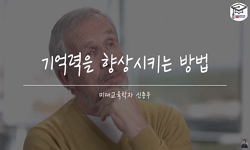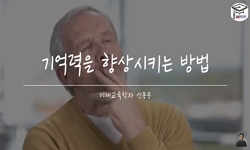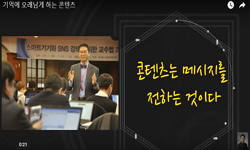본 연구는 유머 광고가 효과가 있는지 없는지 하는 것보다, 언제 유머 광고가 효과가 있는지, 그리고 그 효과의 이면에 있는 처리는 구체적으로 무엇인지를 설명하기 위한 것이다. 연구결과,...
http://chineseinput.net/에서 pinyin(병음)방식으로 중국어를 변환할 수 있습니다.
변환된 중국어를 복사하여 사용하시면 됩니다.
- 中文 을 입력하시려면 zhongwen을 입력하시고 space를누르시면됩니다.
- 北京 을 입력하시려면 beijing을 입력하시고 space를 누르시면 됩니다.
https://www.riss.kr/link?id=A100196378
- 저자
- 발행기관
- 학술지명
- 권호사항
-
발행연도
2008
-
작성언어
Korean
-
주제어
유머 ; 인지욕구 ; 메시지 관련성 ; 기억 ; 주의 ; 기분 ; humor ; need for cognition ; message relatedness ; memorability ; attention ; mood
-
등재정보
KCI등재
-
자료형태
학술저널
-
수록면
7-40(34쪽)
-
KCI 피인용횟수
19
- 제공처
-
0
상세조회 -
0
다운로드
부가정보
국문 초록 (Abstract)
본 연구는 유머 광고가 효과가 있는지 없는지 하는 것보다, 언제 유머 광고가 효과가 있는지, 그리고 그 효과의 이면에 있는 처리는 구체적으로 무엇인지를 설명하기 위한 것이다. 연구결과, 첫째, 유머가 강하고 메시지 주장과 관련되었을 때, 유머의 주의를 모으는 메커니즘은 기억을 위한 긍정적 효과로 바뀐다는 것을 발견하였다. 이 결과는 강한 유머 자체가 항상 효과를 보증하는 것은 아니라는 것을 말해준다. 둘째, 유머는 보는 사람의 기분 상태를 긍정적으로 만듦으로써 그들의 주의를 이끌어내고, 그 결과 광고 내용을 더 기억시킨다는 것을 발견했다. 셋째, 유머-메시지 관련성이 메시지 주장 회상에 미치는 영향력은 인지욕구가 낮은 사람들보다 인지욕구가 높은 사람들에게 더 크다는 것을 발견했다. 이는 유머를 사용하려는 광고 실무자들에게 목표 청중을 세분화하고 타깃팅하는 방법을 제안한다. 본 연구는 ‘유머가 과연 광고의 이해를 높이는 효과적인 커뮤니케이션기술인가?’라는 오랜 의문에 답을 제시함과 동시에 유머 광고가 소비자들에게 호감을 주고 주의를 끌 것이라는 광고 실무자들의 관습적인 믿음에 이론적 뒷받침을 제공한다.
다국어 초록 (Multilingual Abstract)
The purpose of this study is to examine when does humor influence on ad memorability and what is the process underlying such effects. The results show that humor`s attention gaining mechanism may translate into positive effects for memory when humor i...
The purpose of this study is to examine when does humor influence on ad memorability and what is the process underlying such effects. The results show that humor`s attention gaining mechanism may translate into positive effects for memory when humor is both strong and related to the message. It means that strong humor itself is not always guarantee effects of advertising. This joint impact of humor strength and humor-message relatedness on claims recall is mediated by attention and mood. And higher humor-message relatedness induce higher recall among individuals with a high need for cognition than individuals with a low need for cognition. The results of this study suggest how target and segment the audience of humor advertising.
참고문헌 (Reference)
1 윤각, "한국과 미국의 TV광고에 나타난 유머 광고의 유형에 관한 연구" 11 (11): 160-179, 2004
2 이명천, "광고연구방법론" 커뮤니케이션북스 2005
3 Cacioppo, John T., "need for cognition" 42 : 116-131, 1982
4 Edell, Julie A., "information processing of pictures in print advertisements" 10 (10): 45-61, 1983
5 Cline, Thomas W., "When does humor enhance or inhibit ad responses? The moderating role of need for levity" 32 (32): 31-46, 2003
6 Toncar, Mark F., "The use of humor in television advertising: revisiting the US-UK comparison" 20 (20): 521-539, 2001
7 Weinberger, Marc G., "The use and effect of humor in different advertising media" 35 : 44-56, 1995
8 Batra, Rajeev, "The role of mood in advertising effectiveness" 17 : 203-214, 1990
9 Heckler, Susan E., "The role of expectancy and relevancy in memory for verbal and visual information: What is incongruency" 18 (18): 475-492, 1992
10 Cline, Thomas W., "The role of expectancy and relevancy in humorous ad executions: An individual difference perspective" University of Cincinnati 1997
1 윤각, "한국과 미국의 TV광고에 나타난 유머 광고의 유형에 관한 연구" 11 (11): 160-179, 2004
2 이명천, "광고연구방법론" 커뮤니케이션북스 2005
3 Cacioppo, John T., "need for cognition" 42 : 116-131, 1982
4 Edell, Julie A., "information processing of pictures in print advertisements" 10 (10): 45-61, 1983
5 Cline, Thomas W., "When does humor enhance or inhibit ad responses? The moderating role of need for levity" 32 (32): 31-46, 2003
6 Toncar, Mark F., "The use of humor in television advertising: revisiting the US-UK comparison" 20 (20): 521-539, 2001
7 Weinberger, Marc G., "The use and effect of humor in different advertising media" 35 : 44-56, 1995
8 Batra, Rajeev, "The role of mood in advertising effectiveness" 17 : 203-214, 1990
9 Heckler, Susan E., "The role of expectancy and relevancy in memory for verbal and visual information: What is incongruency" 18 (18): 475-492, 1992
10 Cline, Thomas W., "The role of expectancy and relevancy in humorous ad executions: An individual difference perspective" University of Cincinnati 1997
11 Cline, Thomas W., "The joint impact of humor and argument strength in a print advertising context: a case for weaker arguments" 16 (16): 69-86, 1999
12 Cline, Thomas W., "The influence of humor strength and humor-message relatedness on ad memorability" 36 (36): 55-67, 2007
13 Weinberger, Marc G., "The impact of humor in advertising: A review" 21 : 35-59, 1992
14 Weinberger, Marc G., "The impact of humor in advertising: A review" 21 : 35-59, 1985
15 Muehling, Darrel D., "The impact of comparative advertising on levels of message involvement" 16 (16): 41-50, 1990
16 Speck, Paul Surgi, "The humorous message taxonomy: A framework for the study of humorous ads, in Current Issues and research in advertising" Division of research, Michigan Business School, University of Michigan 1-44, 1991
17 Petty, Richard E., "The elaboration likelihood model of persuasion" Springer Verlag 1986
18 Alden, Dana L., "The effects of incongruity, surprise and positive moderators on perceived humor in Television advertising" 29 (29): 1-15, 2000
19 Madden, Thomas J., "The effects of humor on attention in magazine advertising" 11 : 8-14, 1982
20 Cantor, Joanne R., "The effect of humor on recall of a radio advertisement" 24 : 13-22, 1980
21 Kellaris, James J., "The effect of Background music on ad processing: A contingency explanation" 57 : 114-125, 1993
22 Weinberger, Marc G., "The Use of Humor in Radio Advertising" 31 : 44-52, 1991
23 박영봉, "TV 유머 광고의 표현 특성에 관한 연구" 7 : 182-208, 2001
24 이철, "TV 유머 광고에 대한 비교문화적 연구" 27 (27): 227-237, 1992
25 Isen, Alice, "Some ways in which affect influences cognitive processes: Implications for advertising and consumer behavior, in advertising and sonsymer psychology" Lexington Books 91-117, 1989
26 Lee, Y. L., "Responses to information incongruency in advertising; The role of expectancy, relevancy, and humor" 26 (26): 156-169, 1999
27 Zhang, Young, "Responses to humorous advertising: The moderationg effect of need for cognition" 25 (25): 15-32, 1996
28 Wicker, Frank W., "Relationships among affective and cognitive factors in humor" 15 : 350-370, 1981
29 Isen, Alice, "Positive affect, cognitive processes and social behavior, in Advances in Experimental Social Psychology, vol.20" Academic Press 203-253, 1987
30 Keller, Kevin L., "Memory and evaluation effects in competitive advertising envirnment" 17 : 463-476, 1991
31 Alba, Joseph W., "Memory and decision making. In Handbook of consumer behavior" Prentice Hall -49, 1991
32 Bruner, Gordon C, II, "Marketing scales handbook, vol.2" American marketing Association 1996
33 Isen, A. M., "Influence of positive affect on the subjective utility of gains and losses: It is just not worth the risk" 55 (55): 710-717, 1988
34 Chattopadhyay, Amitava, "Humor in advertising: The moderatiing role of prior brand evaluation" 27 : 466-476, 1990
35 Madden, Thomas J., "Humor in advertising: A practitioner view" 24 (24): 23-29, 1984
36 Duncan, Calvin P., "Humor in advertising: A behavioral perspective" 7 (7): 285-306, 1979
37 Sternthal, Brian, "Humor in advertising" 37 : 12-18, 1973
38 Elpers, Josephine, "Humor in Television advertising: a moment-to-moment analysis" 31 (31): 592-598, 2004
39 O’quin, Karen, "Humor as a technique of social influence" 44 (44): 349-357, 1981
40 Kellaris, James J., "Humor and ad memorability: on the contributionsof humor expectancy, relevancy, and need for humor" 24 (24): 497-509, 2007
41 Lewin, Kurt, "Field theory in social science" Harper 1951
42 이명천, "FCB 그리드 모델의 타당성과 활용도를 위한 전제" 8 (8): 114-138, 1990
43 Fredman, Hershey H., "Endorser effectiveness by product type" 19 : 63-71, 1979
44 Burnkrant, Robert E., "Effects of involvement and message content on information-processing intensity, in information processing research in advertising" Lawrence Erlbaum Associates 43-64, 1983
45 Bryant, Jennings, "Effects of humorous illustrations in college textbooks" 8 (8): 43-57, 1981
46 Markiewicz, Dorothy, "Effects of humor on persuasion" 37 (37): 407-422, 1974
47 Duncan, Calvin P., "Effects of humor in a radio advertising experiment" 14 (14): 33-64, 1985
48 Smith, Stephen M., "Does humor in advertising enhance systematic processing? in Advances in consumer research. vol.20" Association for consumer research 155-158, 1993
49 Scott, Cliff, "Consumer Response to humor in advertising: A series of field studies using behavioral observation" 16 : 498-501, 1990
50 Burke, Raymond R., "Competitive interference and consumer memory for advertising" 15 : 55-68, 1988
51 Yi, Youjae, "Cognitive and affective priming effects of the context for print, advertisements" 19 (19): 40-48, 1990
52 Cacioppo, John T., "Central and peripheral routes to persuasion: An individual difference perspective" 51 : 1032-1043, 1986
53 Madden, Thomas J., "Attitude toward the ad: An assessment of diverse measurement indices under different processing sets" 25 (25): 242-252, 1988
54 Sobel, Mark E., "Asymptotic intervals for indirect effects in structural equation models, in Sociological Methodology" Jossey- Bass 290-312, 1982
55 Spotts, Harlan, "Assessing the use and impact of humor on advertising effectiveness: A contingency approach" 26 (26): 17-32, 1997
56 Belch George E., "An investigation of the effects of repetition on cognitive and effective reactions to humorous television commercials" 11 (11): 4-10, 1984
57 Punj, Girish, "An interaction framework of consumer decision making" 10 : 181-196, 1983
58 Alden, Dana L., "An examination of cognitive factors related to humorousness in Television advertising" 22 : 29-37, 1993
59 Batra, Rajeev, "Affective responses mediating acceptance of advertising" 13 : 234-249, 1986
60 Johnson E., "Affect, generalization, and the perception of risk" 45 (45): 20-31, 1983
61 Sutherland, Max, "Advertising and the mind of the consumer" Allen and Unwin 2000
62 Rossiter, John R., "Advertising and promotion management" McGraw-Hill 1987
63 Wyer, Robert S., "A theory of humor elicitation" 99 (99): 663-688, 1992
64 Krishnan, H. Shanker, "A process analysis of the effects of humorous advertising executions on brand claims memory" 13 (13): 230-245, 2003
65 Littmann, Jane R., "A new formulation of humor" 3 : 183-207, 1983
동일학술지(권/호) 다른 논문
-
- 한국광고홍보학회
- 윤승욱(Sung Uk Yun)
- 2008
- KCI등재
-
- 한국광고홍보학회
- 최은섭(Eun Sob Choi)
- 2008
- KCI등재
-
행위단서로서의 미디어 캠페인이 인플루엔자 예방행동에 미치는 영향
- 한국광고홍보학회
- 이병관(Byoung Kwan Lee)
- 2008
- KCI등재
-
기업 CSR 활동이 구직자의 구직 의도에 미치는 영향에 관한 연구
- 한국광고홍보학회
- 김효숙(Hyo Sook Kim)
- 2008
- KCI등재
분석정보
인용정보 인용지수 설명보기
학술지 이력
| 연월일 | 이력구분 | 이력상세 | 등재구분 |
|---|---|---|---|
| 2027 | 평가예정 | 재인증평가 신청대상 (재인증) | |
| 2021-01-01 | 평가 | 등재학술지 유지 (재인증) |  |
| 2018-01-01 | 평가 | 등재학술지 유지 (등재유지) |  |
| 2015-01-01 | 평가 | 등재학술지 유지 (등재유지) |  |
| 2011-01-01 | 평가 | 등재학술지 유지 (등재유지) |  |
| 2009-01-01 | 평가 | 등재학술지 유지 (등재유지) |  |
| 2006-01-01 | 평가 | 등재학술지 선정 (등재후보2차) |  |
| 2005-06-09 | 학술지명변경 | 한글명 : 한국광고학보 -> 한국광고홍보학보외국어명 : 미등록 -> The Korean Journal of Advertising and Public Relations |  |
| 2005-01-01 | 평가 | 등재후보 1차 PASS (등재후보1차) |  |
| 2003-01-01 | 평가 | 등재후보학술지 선정 (신규평가) |  |
학술지 인용정보
| 기준연도 | WOS-KCI 통합IF(2년) | KCIF(2년) | KCIF(3년) |
|---|---|---|---|
| 2016 | 1.22 | 1.22 | 1.47 |
| KCIF(4년) | KCIF(5년) | 중심성지수(3년) | 즉시성지수 |
| 1.64 | 1.72 | 2.318 | 0.22 |





 DBpia
DBpia






